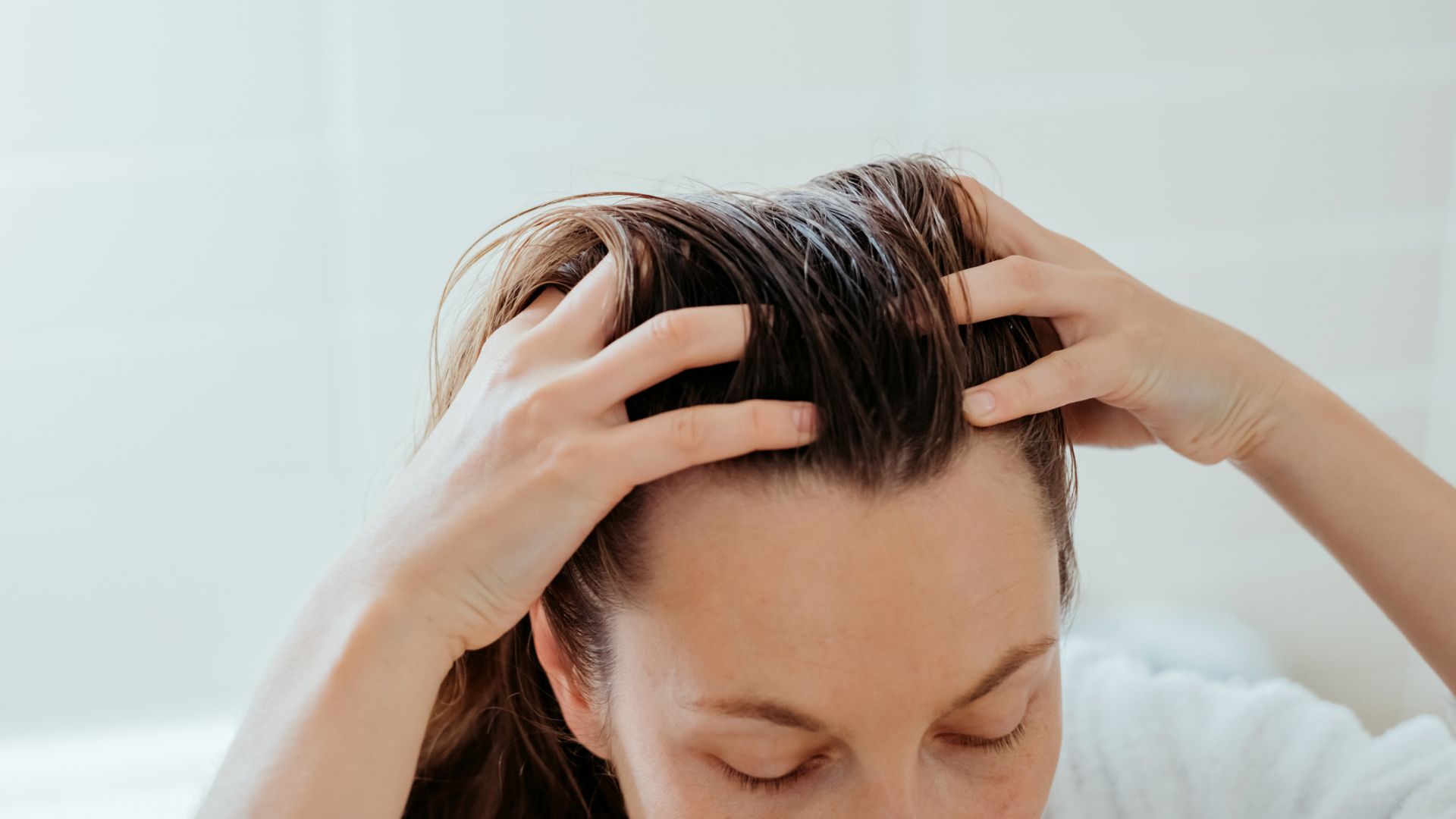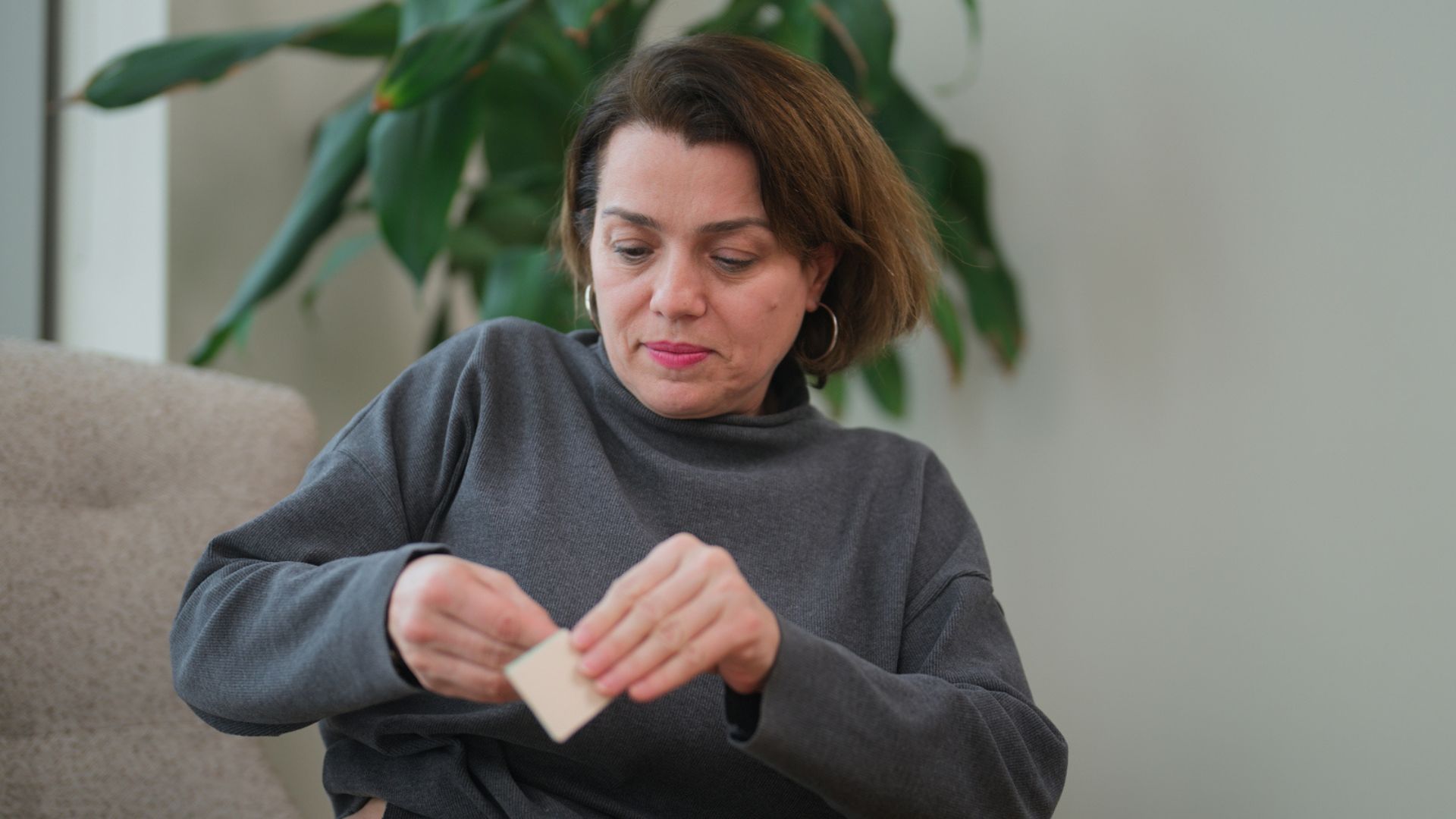Can HRT cause hair loss? Doctors reveal the truth behind this common concern
Can HRT cause hair loss? It's a common question for those thinking about taking this type of medication. Here, hair specialists and menopause doctors reveal what you need to know

Can HRT cause hair loss? Hormone replacement therapy, or HRT, is given to women to help with the treatment of menopause symptoms. It replaces oestrogen and progesterone, which fall to much lower levels as we age. However, like all medical treatments, it's not without its side effects.
While there are many causes of thinning hair in women, there is a strong link between hair loss and menopause. During menopause, we produce much lower levels of oestrogen and progesterone, hormones that impact every part of the body, including our hair follicles. They help the hair grow faster and stay on our bodies. However, many women also find that in taking medication like HRT to help with menopause symptoms, they find their hair thinning or changing in colour, texture, and thickness.
Here, woman&home reveals the link between this important menopause treatment and thinning hair in women, speaking to several doctors specialising in hair regrowth and menopause treatments.
Can HRT cause hair loss?
Yes, HRT can be a cause of hair loss and thinning for some women but it's not among the most common side effects of hormone replacement therapy. Menopause can contribute to hair thinning and loss as follicle growth relies on oestrogen, which our bodies produce at much lower levels during menopause. So, the opposite tends to be true: HRT is one way to stop hair thinning in women.
"Using hormone therapy in menopause tends to support healthy hair growth both by providing more favourable hormone availability to maintain normal hair follicle health and hair growth, but also indirectly via its impact on the immune system, metabolic health, and stress levels," says GP Dr Fionnuala Barton, a British Menopause Society-accredited specialist.
However, as with anything else to do with our bodies, the same rule does not apply to everyone. "Some women may find that the addition of hormone therapy triggers or makes existing hair loss worse," says Dr Barton. It's not understood why it happens, she notes, and it's impossible to know who it's going to impact when prescribing HRT.
Fellow GP Dr Alice Duffy, who is also the founder of Health in Menopause, says that some types of HRT may be more likely to contribute to hair loss and thinning than others as well. "HRT may contribute to hair thinning if it contains synthetic progestogens with androgenic effects, particularly in individuals predisposed to androgen sensitivity at the hair follicle." However, she notes this is more contingent on the specific type of HRT and our genetics than being an overarching side effect of all HRT.
Sign up to our free daily email for the latest royal and entertainment news, interesting opinion, expert advice on styling and beauty trends, and no-nonsense guides to the health and wellness questions you want answered.
Both hair loss and hair thinning can cause a visual difference in your appearance, which naturally may impact your self-confidence and mental wellbeing when you're
going through other bodily changes, thanks to menopause and perimenopause symptoms. If you think that HRT is contributing to your hair thinning or you have any concerns about treatment, speak to your doctor who can diagnose the issue and suggest possible alternatives.

Dr Fionnuala Barton MBBS BSc MRCGP is a GP, Women's Health Doctor and an accredited British Menopause Society Specialist.She is passionate about optimising physical and emotional wellness for women at all stages of life and has particular interest in early recognition and management of perimenopausal and menopausal symptoms, POI, PMS and PMDD.
Is it normal to lose hair on hormone replacement therapy?
It's normal to experience side effects of HRT, given that it's a medication. However, it's hard to say whether HRT-related hair loss should be expected, as everyone's body is different.
"Unfortunately, we cannot easily predict who will encounter hair loss or thinning in menopause," says Dr Barton. "We also can't stop the normal ageing process, so prevention is challenging. You may want to think about making lifestyle and hair care changes, and exploring hormone therapy or other interventions early if you have a strong family history of female pattern hair loss."
There are also many other causes of hair loss, which differ from hair thinning, says Dr Shahzadi Harper, a menopause specialist and doctor at The Better Menopause, as it's "characterised by a reduction in hair strand density and thickness, primarily affecting the hair volume, whereas hair loss refers to the outright shedding of hair strands." Stress and burnout are commonly found to be key reasons for hair loss, as are nutritional deficiencies, genetics, and various other medical conditions, such as alopecia.
Dr Shahzadi Harper is a doctor specialising in perimenopause and menopause, polycystic ovarian syndrome, premenstrual stress disorder, healthy ageing and weight management. She believes in the early management of symptoms of the perimenopause and menopause to stay youthful and healthy. Dr Harper has given educational lectures to GPs on menopause, mood and sex, menopause myths and HRT- Putting the Risks of HRT into Perspective; mood disorder during the menopause transition; breast cancer and HRT.

There are many different types of HRT, some include synthetic hormones while others are bioidentical
Can HRT patches cause hair loss?
HRT patches are just another type of HRT. They have a similar makeup to gels, tablets, and other forms of medication, so they will have similar side effect risks when it comes to hair loss. "Oestrogen-only patches tend not to be associated with hair loss as oestrogen has a supportive action at the hair follicle," Dr Barton says.
However, she notes that "increasing numbers of women using combination patches that use synthetic progestins with oestradiol report increased rates of hair loss." It's a side effect listed in the product's leaflets, she notes, but it's not known how many women it will affect and why.
Will hair loss from HRT grow back?
Just because it's not a common side effect of HRT doesn't mean that hair loss or thinning won't be related to it. The good news is, Dr Duffy says, "If hair loss is directly caused by components of HRT, especially testosterone or certain synthetic progestogens, it tends to be reversible upon discontinuation of the testosterone or alteration of the HRT regimen." From here, you can learn how to get thicker hair again through additional treatments and lifestyle changes.
If you weren’t experiencing any hair loss before you were taking HRT, there is every chance your hair could grow back if you stop using the medication or seek out an alternative. If your hair loss is exacerbated by a genetic condition, such as female pattern hair loss, diet, or health issues, your hair may be less likely to grow back.
It’s important to talk to your doctor before starting HRT. Women who have a history of breast, ovarian or womb cancer, a history of blood clots or some other health problems may not be suitable for this type of medication. But there are many different types of HRT and your GP will tell you which is most suitable for you on consultation.

Dr Alice Duffy is the founder of the private menopause clinic Health in Menopause and a British Menopause Society Accredited menopause specialist, dedicated to improving women's health, particularly during menopause. With a medical degree from Glasgow University in 1987, she focuses on personalised care, debunking HRT myths, and empowering women to thrive personally and professionally.

Kat Storr has been a digital journalist for over 15 years after starting her career at Sky News, where she covered everything from world events to royal babies and celebrity deaths. After going freelance eight years ago, she now focuses on women's health and fitness content, writing across a range of UK publications.
From perimenopause to the latest fitness trends, Kat loves researching and writing about it all. She's happy to give any fitness challenge a go and speaks to experts about wellbeing issues affecting people every day.
